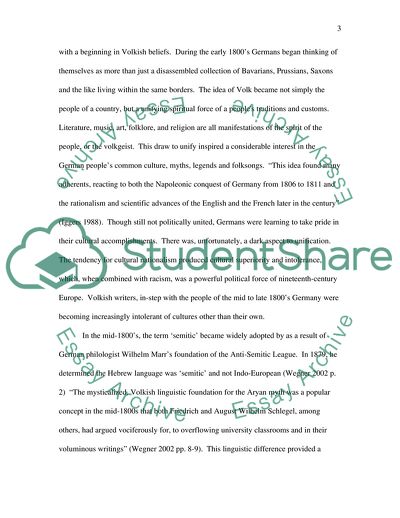Cite this document
(Anlyse the importance of volkish thinking in shaping Nazi policies Essay, n.d.)
Anlyse the importance of volkish thinking in shaping Nazi policies Essay. https://studentshare.org/history/1703301-anlyse-the-importance-of-volkish-thinking-in-shaping-nazi-policies
Anlyse the importance of volkish thinking in shaping Nazi policies Essay. https://studentshare.org/history/1703301-anlyse-the-importance-of-volkish-thinking-in-shaping-nazi-policies
(Anlyse the Importance of Volkish Thinking in Shaping Nazi Policies Essay)
Anlyse the Importance of Volkish Thinking in Shaping Nazi Policies Essay. https://studentshare.org/history/1703301-anlyse-the-importance-of-volkish-thinking-in-shaping-nazi-policies.
Anlyse the Importance of Volkish Thinking in Shaping Nazi Policies Essay. https://studentshare.org/history/1703301-anlyse-the-importance-of-volkish-thinking-in-shaping-nazi-policies.
“Anlyse the Importance of Volkish Thinking in Shaping Nazi Policies Essay”. https://studentshare.org/history/1703301-anlyse-the-importance-of-volkish-thinking-in-shaping-nazi-policies.


